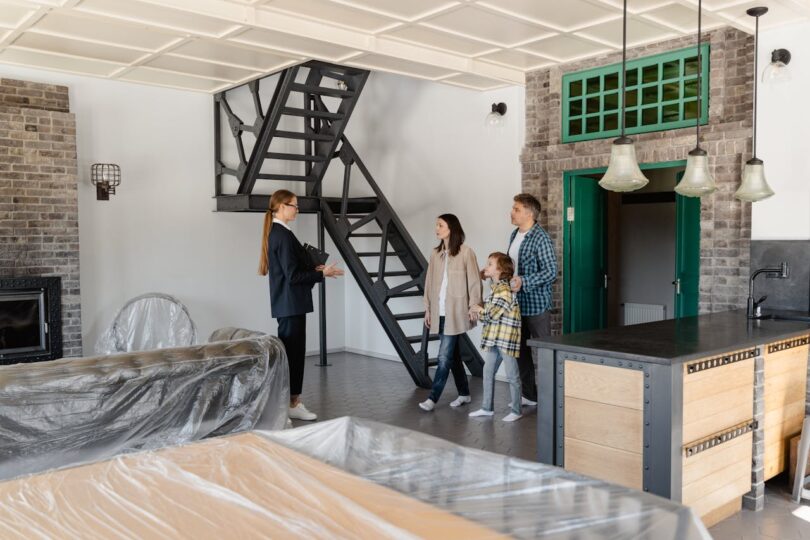Finding the right business locations for rent is one of the most important decisions you’ll make as a business owner. Your location impacts everything—from customer foot traffic and employee accessibility to overall branding. Leasing commercial real estate can be complex, filled with jargon, legal terms, and costly mistakes if not handled properly.
This comprehensive guide walks you through every essential aspect of securing a rental space for your business. From understanding lease types and lease clauses to hiring a commercial real estate broker, we’ll break it all down in a practical, SEO-optimized format.
Types of Commercial Leases: Know Before You Sign
Before entering any agreement, understand which lease type best suits your business:
- Full-Service Gross Leases: The landlord pays for all property-related expenses. Your rent covers everything.
- Modified Gross Leases: You pay base rent plus certain operational expenses like janitorial or utilities.
- Percentage Leases: Often used in retail; you pay a base rent plus a percentage of your sales.
- Net Leases: You pay base rent plus property expenses. Variants include:
- Single Net Lease (N)
- Double Net Lease (NN)
- Triple Net Lease (NNN): Tenant pays for everything, including maintenance.
Understanding these lease structures helps you align budget expectations and avoid hidden costs.
Master Leases and Letters of Intent (LOIs)
Master leases are typically used for larger spaces or subleasing situations, giving tenants more control over the property. Letters of Intent (LOIs), on the other hand, outline preliminary terms before the final lease is signed.
Pro Tip: Always consult an attorney before signing an LOI or lease. Some LOIs can be legally binding depending on your state.
Tenant Improvements and Allowances
When seeking business locations for rent, you’ll likely need to modify the space. Understanding Tenant Improvements (TI) and Tenant Improvement Allowances (TIA) is crucial:
- Know what’s included in the allowance (e.g., lighting, HVAC, ceiling tiles).
- Clarify if you need to hire a construction project manager.
- Determine if the space is a “warm shell” or needs extensive buildout.
Common Lease Clauses to Watch
Understanding lease clauses can save you money and avoid disputes:
- Common Area Maintenance (CAM) Charges: Know what you’re paying for.
- Capital Improvements: Ask about deferred maintenance or future repairs.
- Base Year Provisions: In full-service leases, you may owe increased costs after the base year.
- Force Majeure Clause: Protects both parties in unforeseen events.
- Pet Clauses: Especially important in tech or single-tenant spaces.
Why You Should Hire a Commercial Real Estate Broker
Hiring a tenant representative or commercial real estate broker can drastically improve your leasing experience. Here’s why:
- Tenant Representation: Brokers represent your interests—not the landlord’s.
- Market Knowledge: Access off-market deals and local market trends.
- Proprietary Listings: Brokers have access to networks unavailable to the public.
- Negotiation Skills: Save time and money by leveraging broker expertise.
- Emotional Buffer: Brokers handle negotiations, taking emotion out of the deal.
- Insight Into Property History: Avoid renting places with negative reputations.
- Lease Term Customization: Ensure favorable terms tailored to your business.
- Post-Lease Support: Some brokers remain available to help with future issues.
Learn how digital marketing can amplify your visibility once you’ve secured the right location in our guide on Digital Marketing for Small Businesses by Garage2Global.
Top Features to Look for in Business Locations for Rent
While price and location are key, consider these additional features:
- Accessibility: Easy for employees and customers to reach.
- Parking Space: Essential for customer convenience.
- Zoning Compliance: Ensure the property is legally usable for your business type.
- Security and Safety: A safe neighborhood attracts foot traffic and staff.
- Scalability: Choose a space you can grow into.
Online Listings vs. Professional Help
While it’s tempting to search “business locations for rent” on Google or commercial real estate websites, professional brokers offer value that listings alone can’t match:
| Method | Pros | Cons |
|---|---|---|
| Online Listings | Fast, convenient | Limited data, no negotiation |
| Real Estate Brokers | Expert guidance, better deals | Commission (often paid by landlord) |
Conclusion: Combine both approaches for the best results.
Steps to Finding the Right Business Location
- Define Your Requirements: Size, budget, location, and amenities.
- Hire a Broker: Choose someone experienced in your market.
- Tour Properties: Visit several options.
- Evaluate Lease Terms: Use professional help.
- Negotiate Terms: Involve your broker and attorney.
- Sign the Lease: Make sure all terms are documented.
- Prepare for Move-In: Coordinate tenant improvements.
Actionable Tips for New Business Owners
- Ask for a detailed CAM breakdown before signing.
- Inquire about any capital improvements planned.
- Look for spaces with recent HVAC and roofing upgrades.
- Understand your base year to avoid cost hikes.
- Hire a construction project manager if leasing more than 10,000 sq. ft.
Conclusion: Make Smart Leasing Decisions
Leasing business locations for rent is a strategic move that can elevate your business or hold it back. From understanding lease terms and hiring the right broker to customizing tenant improvements, there are many moving parts.
With the right guidance, you’ll avoid pitfalls and secure a location that supports your growth. Follow this guide, consult professionals, and never settle for less than what your business deserves





Leave a Comment